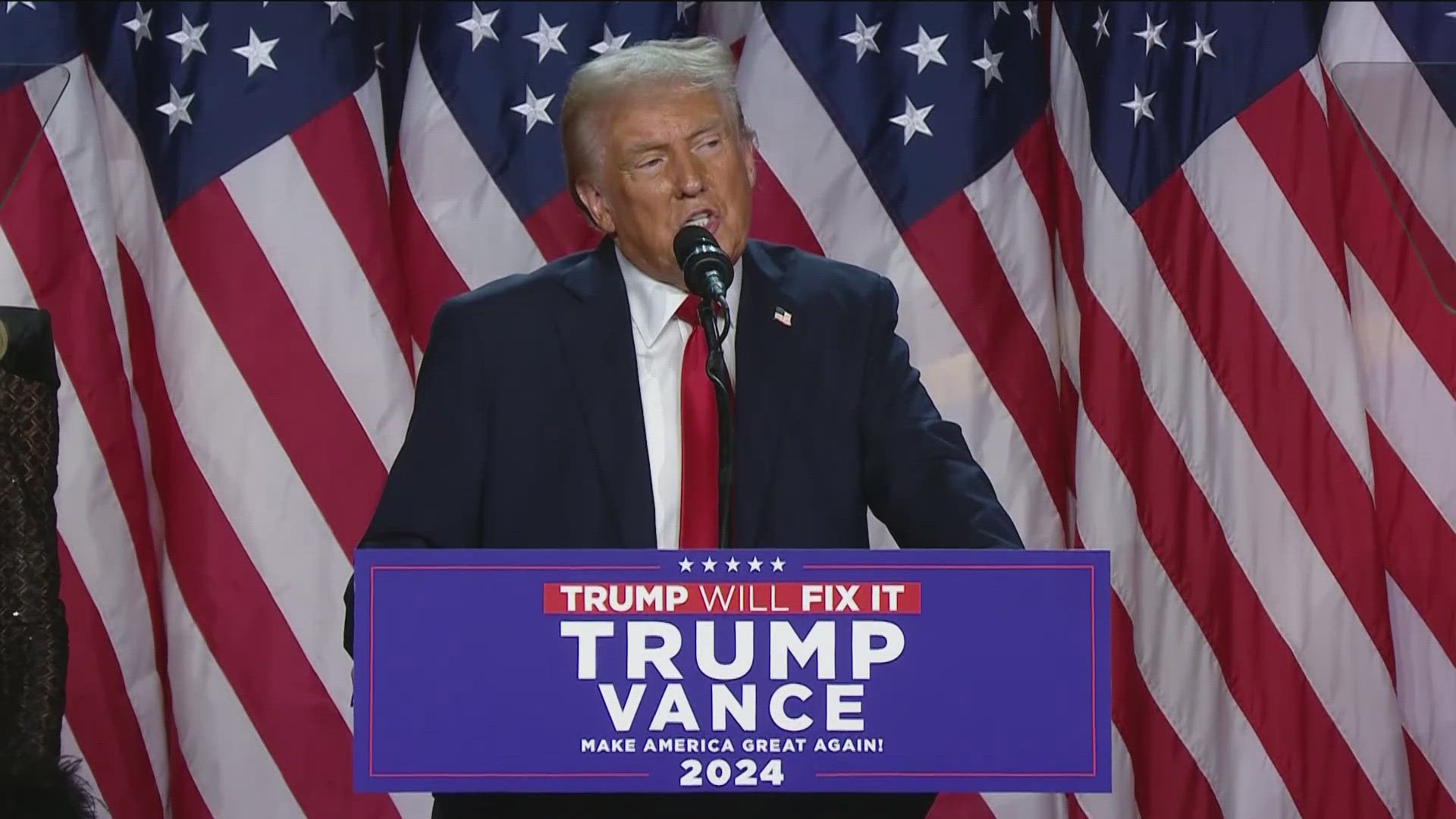SAN DIEGO — President-elect Donald Trump has reiterated his campaign promise to impose significant tariffs on goods imported from Mexico, Canada and China.
The proposed 25% tariff on products from Mexico and Canada, along with an additional 10% tariff on Chinese imports, could have far-reaching consequences for consumers, particularly in California.
"We're going to charge tariffs on all these foreign countries coming in and ripping us off," Trump stated, doubling down on his earlier promises.
According to Alan Gin, an economics professor at the University of San Diego, these tariffs would likely result in higher prices for consumers.
"A tariff is a tax on imports," Gin explained.
He added that the extra costs imposed on importers would probably be passed on to consumers, affecting everything from avocados to automobiles.
"That is going to hurt San Diegans," Gin warned. "We are going to have to pay more for products, for food, for audio visual equipment, for auto parts, things like that."
The impact could be particularly significant for California, as Mexico is the state's largest trading partner and the biggest market for California-made goods. If Mexico retaliates with its own tariffs on U.S. exports, as its president has suggested, it could potentially lead to a trade war.
Trump's recent online post indicated that the tariffs would be used to address border issues, specifically drugs and migrants.
Trump posted on Truth Social, "This tariff will remain in effect until such time as drugs, in particular Fentanyl, and all illegal aliens stop this invasion of our country!"
In response, Mexico's new president Claudia Sheinbaum criticized Trump's suggestion that Mexico can simply stop drug traffic.
She wrote in a letter to Trump, "Tragically, it is in our country that lives are lost to the violence resulting from meeting the drug demand in yours."
Sheinbaum also vowed to retaliate with tariffs on U.S. goods exported to Mexico.
Gin highlighted the potential for escalation.
"That is the worry that when you impose tariffs, that you could set off a trade war," he said, noting that Mexico, Canada, and China are the U.S.'s largest trading partners.
"If those countries respond, retaliate by putting up tariffs, that will hurt US exports, and therefore it will hurt US jobs," he told CBS 8.
While it remains unclear whether Trump will follow through on these new tariffs, economists suggest that the impact on consumer prices may not be immediate. Many companies would likely stockpile goods in the short term to avoid paying tariffs, but this strategy would only last for a few months before increased costs would be passed on to consumers.

